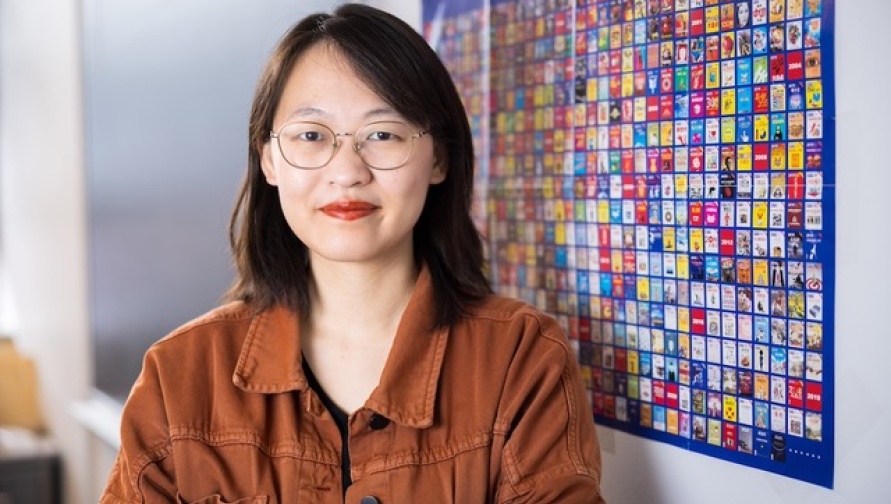
Q: Tell us about the Klarman Fellowship at Cornell.
The Klarman Fellowship that I’m completing at Cornell (2023-26) has been an amazing three-year opportunity providing me with incomparable resources of research support. Each year a cohort of fellows are selected globally across sciences and the humanities to address some of the most urgent matters of the world, and over the years I have formed meaningful relationships with a number of fellows in the group. For example, I am always deeply grateful for the opportunities to have read each other’s work with a Latin Americanist, workshopped my writing thanks to the kind invitation of an art historian, and shared the pure excitement of research with my economist and Americanist friends even if we worked on totally different things. With the support of this fellowship, I was able to read widely, explore new directions of research, travel internationally for fieldwork and research sharing, and devote a significant amount of time to writing. I also owe a lot of thanks to many faculty, staff, and graduate student colleagues at Cornell, who all helped me grow as a scholar. Even if I haven’t taught for a while thanks to this generous fellowship, it has been greatly helpful to have the opportunities to observe colleagues’ classes, guest teach, and participate in colleagues’ workshops for collective thinking. Up to this point, I miss the classroom a lot and I’m excited to return to the calssroom with some rethinking of my teaching materials that could speak to the interests and struggles of the students today. When I started the fellowship, my research focus was on Chinese new media studies, but with my research scope expanded temporally, spatially, and methodologically in the past two years, I now feel ready and motivated to connect Chinese/Asian studies with the wider field of global and comparative cultural theory and media history. To me, these fellowship years are really transformative for thinking about the longer arc of my work and the bigger picture of how to make our writing and teaching matter to the crisis-laden world both for today and for the longer future.
Here is more information about the Klarman Fellowship: https://as.cornell.edu/research/klarman-fellowships. It’s currently accepting a new round of applications until October 15, 2025.
Q: What’s happening next?
I am very excited that I will start a tenure-track assistant professorship in Fall 2026 in the Department of Modern Languages and Cultures at the University of Rochester, with much gratitude to my future colleagues for waiting me for a full year. The expectation for this position is to help build the Chinese Program at Rochester and work closely with several other programs such as Comparative Literature, Film and Media, East Asian Studies, and Visual and Cultural Studies. When I visited the Rochester campus the first time, I was really shocked by how fun and friendly everyone was. It allowed me to see limitless possibilities of dialogue right away, from building a really creative and popular Chinese and East Asian studies curriculum to collaborating with colleagues in comparative media and cultural studies and having wild conversations on topics such as industrial ruins and global rock and disco music. This highly interdisciplinary environment of Rochester as well as its history in starting the first cross-disciplinary, critical theory-oriented PhD program in visual studies reminded me a lot of UCI. It’s also a great fortune that Rochester is so close to Cornell, so I’m also looking forward to staying in touch with my interlocutors around upstate New York and having more good conversations.
Q: Can you tell us a bit about your book project and current research?
I much look forward to an incredibly precious year of good writing before starting my tenure-track position. Much of my focus is on my current book project, tentatively titled Documentation as Transmedial Relay: Chinese New Media Archives in an Age of Global Restructuring. This manuscript is based on the dissertation I completed at UCI. The project examines the dispersion of documentary practices across Chinese new media as a collective response to structural crises of globalization in the wake of the 2008 Great Recession. I trace how Chinese literature, film, podcast, digital video, and social media were interlinked to capture shifting realities of this enigmatic period when the rise of China coincided with global economic, political, and ideological restructuring. I draw inspirations from the activity of a relay race to discuss documentation as a creative and open mode of social participation for building community and transmitting critical consciousness across media. As such, I theorize Chinese new media as a critical site for understanding the rapidly changing global media and political ecology during this period of accumulated crises and radical uncertainties.
Along with my book revision, I have been working hard to co-edit a special issue with one of my faculty co-hosts at Cornell, Nick Admussen, and build up tools for my future research. The special issue, “Pandemic Archives: Media, Geopolitics, and Sociality,” is grown out of a two-day workshop I organized with Nick in my first year at Cornell. It carries a lot of my persistent concerns about how to generate meaningful theories from the transnational Chinese worlds that would be legible for the understanding of contemporary global cultural politics and its crisis conditions. The more I work on this project, the more clearly I’m seeing that a lot of the work we are doing today is about crafting a more just future and adding more building blocks to its infrastructure, from archiving to teaching, writing, translating, making arts, and having university meetings even if they don’t seem to go anywhere in many moments. That’s where change starts.
As for my future research—some of my ideas are really erratic and I will let them slowly unfold!
